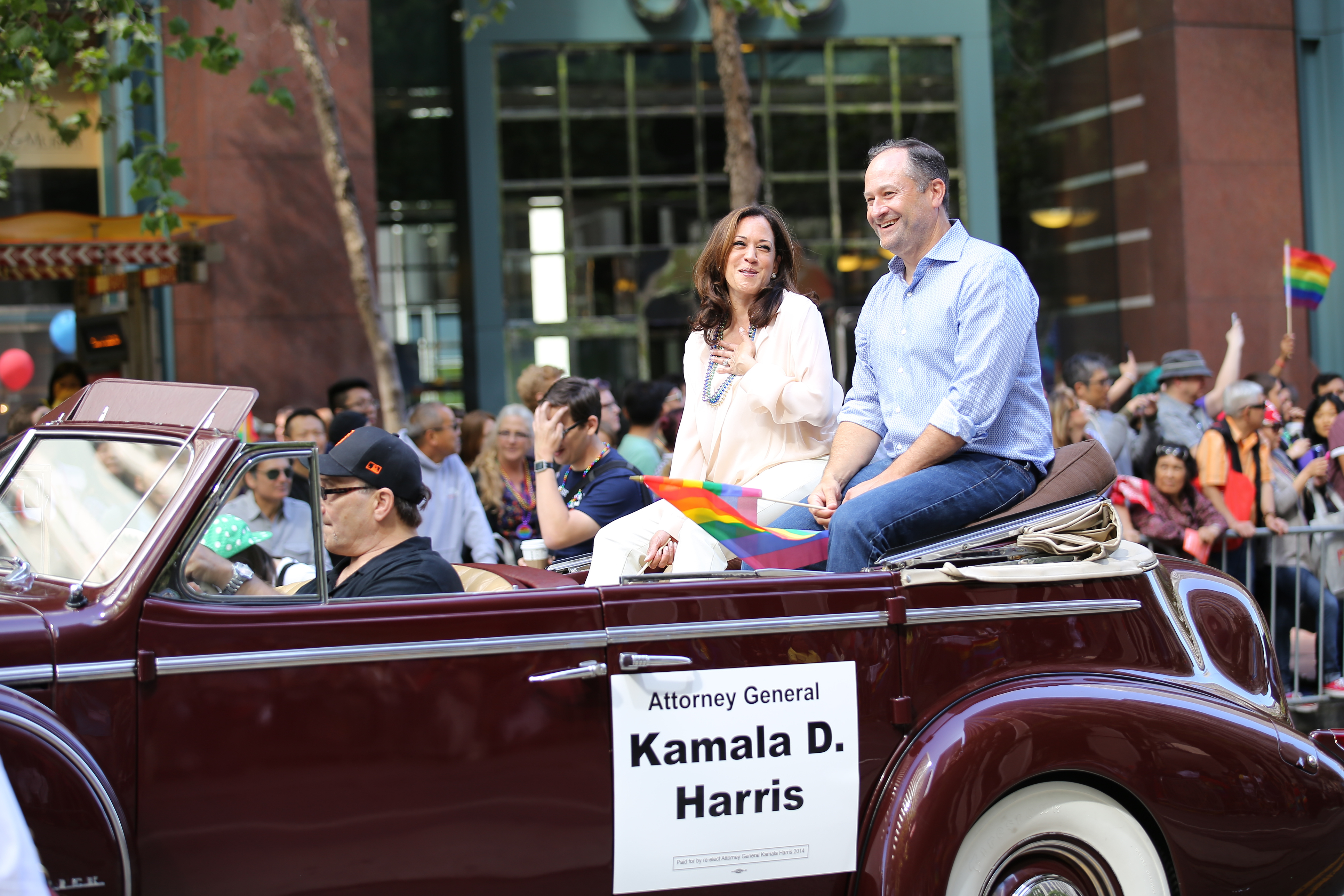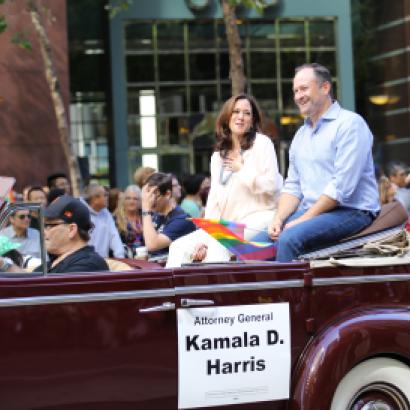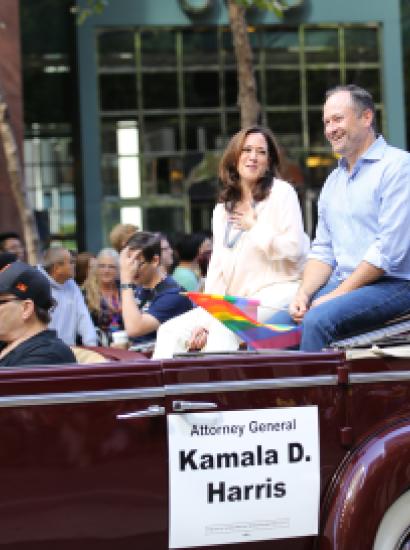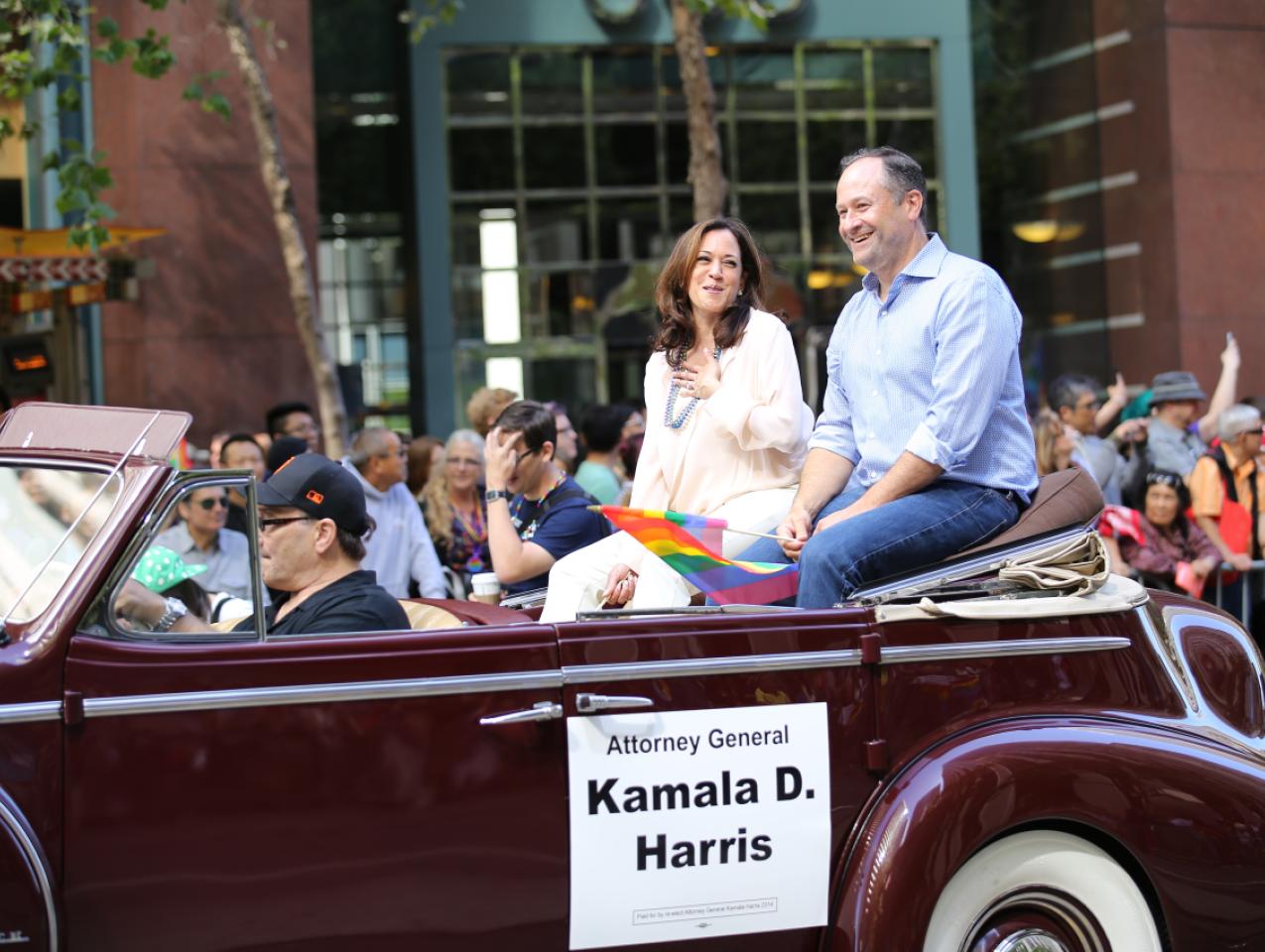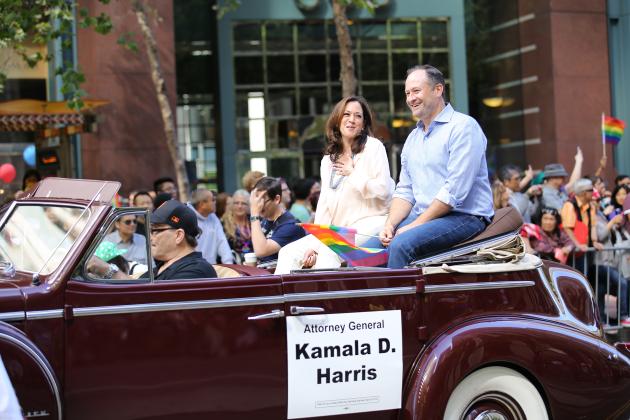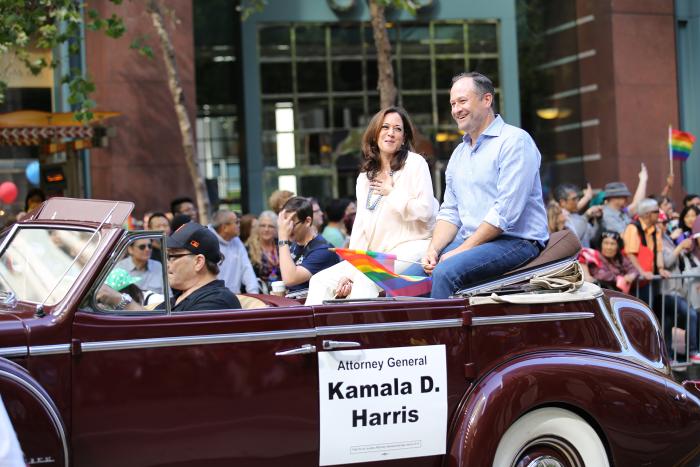- Politics, Institutions, and Public Opinion
We know that California senator Kamala Harris, as a Democratic presidential contender, is no stranger to the backroads of Iowa, New Hampshire, and South Carolina.
And when Harris’s schedule permits some down time, let’s assume that it takes California’s junior senator back home to Los Angeles, where she and her husband reside.
As for what Harris is doing when she’s in the nation’s capital . . . well, that’s a puzzler.
We know that Harris isn’t going to earn a citation for good Senate attendance. So far this year, she’s missed nearly 45% of the chamber’s roll-call votes. (Harris has said she’ll make It a point to be present should her vote make a difference, which is a rarely the case, as much of the Senate’s business in 2019 has been party-line judicial confirmation votes.)
Nor is Harris going to qualify for a commendation for teamwork any time soon.
GovTrack, an independent website that tracks the status of congressional legislation, ranks Harris as 54th among the one hundred US senators in terms of “leadership,” which it defines as a senator’s ability to get cosponsors on bills. Twenty-three of the chamber’s 45 Democratic senators scored higher than Harris, including California senator Dianne Feinstein (ranked 10th overall) and four of Harris’s five fellow senatorial contenders for the presidency (Elizabeth Warren, Amy Klobuchar, Cory Booker, and Kirsten Gillibrand).
Fine then, what about honoring Harris for her senatorial body of work?
You could make a case that Feinstein, thanks to nearly three decades in the chamber and a more moderate demeanor than Harris, is more deserving. Among the measures that Feinstein has introduced or cosponsored and that have been signed into law by President Trump: legislature requiring amateur sports organizations to report sex-abuse allegations to local or federal law enforcement; a bill that federally criminalizes threats to damage the property of religiously affiliated institutions.
As for Harris, she’s introduced three bills that became law during the Trump presidency: a bill that alters how death tolls from natural disasters are counted; a bill authorizing the president to provide a waiver of document-replacement fees to an individual or household in a state that is adversely affected by a major disaster; and a bill authorizing the US Department of the Interior to acquire approximately 44 acres of land in Martinez, California, for inclusion in the John Muir National Historic Site.
This is not to suggest that what Senator Harris is doing in Washington is trivial. And it’s certainly not “Bernie-esque.”
In 2018, only one bill introduced by Vermont senator Bernie Sanders managed to reach the Senate floor (a joint resolution calling for the removal of US forces from Yemen). Only one of Sanders’s 31 bills and resolutions had a Republican cosponsor. Over the course of Sanders’s three Senate terms, only three of his sponsored measures became law (two of them being the critical matter of renaming post office buildings).
By Sanders’s poor standard, then, Harris would seem a Senate workhorse.
But sort of work, exactly?
A quick review of Harris’s record shows her as having sponsored 116 pieces of legislature in the past year. The most popular policy areas: public lands and resources (6 bills); crime and law enforcement (5 bills); labor and employment (4 bills); taxation (4 bills); health and immigration (3 apiece). However, only two Harris measures have reached the floor—making lynching a federal crime and a resolution condemning the anti-Semitic attack on California’s Chabad of Poway synagogue.
So what to make of Harris’s productivity and truancy?
I’ll cut her some slack on the former. The Senate is no longer a bipartisan, look-past-labels chamber (2015’s Every Student Succeeds Act, which overhauled George W. Bush’s No Child Left Behind education reform plan, may have been the Senate’s most recent moment of setting aside partisan rancor). Besides, much of which Harris advocates—she’s co-sponsored Medicare for All and tuition-free college bills—is “keeping up with the Joneses” in that it’s the same as what the Senate’s other Democratic presidential hopefuls are preaching.
In fact, read Harris’s Senate biography and it comes across as an Iowa stump speech: “In the United States Senate, Kamala’s mission remains unchanged: fighting for the rights of all communities in California. Since taking office, she has introduced and cosponsored legislation to raise wages for working people, reform our broken criminal justice system, make healthcare a right for all Americans, address the epidemic of substance abuse, support veterans and military families, and expand access to childcare for working parents.”
But it’s her attendance record that leaves Kamala Harris open to criticism.
In her defense, Harris isn’t the most truant of the Democratic senators running for president. That honor goes to New Jersey senator Cory Booker, who’s missed 118 of 262 Senate floor votes this year (a 45% absence rate), according to GovTrack. Harris has missed 116 votes. (Gillibrand and Sanders each missed 105; Warren missed 74.)
Such frequent absences raise a question as to priorities—Harris’s versus California’s. According to this analysis by the Bay Area News Group, Harris was campaigning in Dubuque, Iowa, in June, when the Senate was moving forward with four Trump judicial picks. In April, she was schmoozing with teachers in Columbia, South Carolina, when another half-dozen judicial picks came to the Senate floor. Harris was in Miami, at the Democrats’ first presidential debate, when the Senate took up a controversial humanitarian aid package for the southwestern border.
From a California perspective, Harris’s seat in Washington puts her at the vanguard of the state’s anti-Trump “resistance,” which includes battling presidential judicial nominations. Is sidling up to voters in early primary states what Californians bargained for when they elected her to the Senate in 2016?
Presidential wannabes shirking their congressional day jobs is not a new occurrence. You might recall Jeb Bush going after Marco Rubio back in 2015 for the latter’s Senate truancy: “Marco, when you signed up for this, this was a six-year term, and you should be showing up for work.”
Bush added: “Literally, the Senate, what is it, like a French work week? You get, like, three days when you have to show up?”
How then to get Kamala Harris to “show up” more frequently?
Her party’s voters will have a say once the presidential caucuses and primaries begin. At the moment, that spells for trouble for Harris, as she’s slid to fourth in most national polls after a breakout performance in the Miami debate.
Here’s my suggestion: if you want senators to show up for work, change the Senate’s pay rules.
At present, each US senator earns an annual salary of $174,000 (the two leaders and president pro tempore each receive $193,400). But it always wasn’t this way. From 1789 to 1815, and again from 1817 to 1855, senators received a per-diem rather than a per-annum salary (first $6 a day, then $8 a day). Why not change the system so that, should a senator seek the presidency while also serving in the chamber, pay is based on floor-vote participation?
It won’t change the federal government’s finances. Dock Senator Harris 44.6% of her annual salary for missing that percentage of floor votes and she’s $77,000 poorer and see how long it takes to reach the number on this national debt clock. Nor is a $77,000 docking-of-pay a financial death blow to Harris—she and her husband, Douglas Emhoff, have an estimated $6 million fortune.
But what the truancy issues do tie into is a problem that supposedly was solved when Republicans took over the Senate (and the House of Representatives) almost 25 years ago: the concept of members of Congress abiding by the same rules as ordinary working stiffs. And unless I’m mistaken, most folks are not paid a full wage for being on the job only three-fifths of the time.
Harris will receive a far more generous salary ($400,000 annual pay, plus a $50,000 expense allowance, a $100,000 non-travel account, and $19,000 for entertainment) if she manages to win the presidency. But American presidents can’t afford to be missing in action nearly 45% of the time.
Kinda makes you wonder why Kamala Harris would ever want to leave the Senate.







